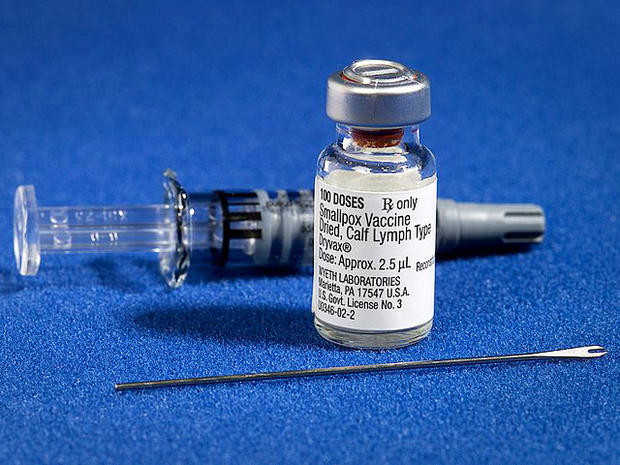Will the U.S. destroy its smallpox stockpile?
(CBS/AP) One of the world's deadliest diseases might get a reprieve, as the U.S. is considering hanging on to its stockpiles of smallpox virus. They're doing so in part out of fears that smallpox could be used by terrorists - in which case having the virus on hand might speed development of treatments for the dreaded illness.
"We fully agree that these samples should - and eventually will - be destroyed," Secretary of Health and Human services Katherine Sibelius wrote in a recent op-ed in the International Herald Tribune. "However, we also recognize that the timing of this destruction will determine whether we continue to live with the risk of the disease re-emerging through deliberate misuse of the virus by others."
Sibelius describes a draft resolution the U.S offered for consideration in advance of this week's World Health Assembly debate on smallpox , that would allow U.S. stockpiles to remain in place for at least another five years while they continue research, until the WHO reassesses the situation at that time.
In addition to the WHO's supply, 451 samples of smallpox virus are being held by the CDC, and 120 are stored in a remote Siberian town in Russia, according to CNN.
For centuries smallpox killed about one-third of the people it infected. But the last known case occurred in 1978.
Many countries see no point in keeping the disease around, and say the world would be safer if the remaining stockpiles of the virus were destroyed.
"It would be an excellent idea to destroy the smallpox viruses," said Dr. Donald A. Henderson, who led WHO's eradication effort in the 1970s. "This is an organism to be greatly feared."
The WHO first agreed in 1996 that smallpox should be destroyed, but that has been repeatedly delayed to give scientists time to develop safer smallpox vaccines and drugs. There are now two such vaccines and a third coming along, plus experimental drugs in the works to treat but not cure the disease.
A report commissioned by WHO last year said there's no compelling scientific reason to hang on to the viruses. But Sibelius deems destroying the virus samples as "merely a symbolic act."
"The world has no immunity to smallpox whatsoever," she said. "It could be released unintentionally or released as a bioweapon."
Is the U.S. right to want to hold on to the smallpox virus? Or are we playing a dangerous game? What do you think?
